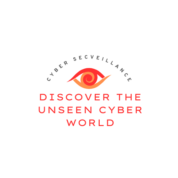The world of cybersecurity is ever-evolving, demanding skilled professionals to safeguard digital infrastructures. Ethical hackers, also known as white-hat hackers, play a crucial role in this landscape, leveraging their expertise to defend systems against cyber threats. Becoming an ethical hacker isn’t just about technical prowess; it requires a blend of skills, knowledge, and an ethical mindset. Here’s a roadmap to embark on this exciting journey:

1. Cultivate a Strong Foundation
Begin with a solid educational foundation. Pursue a degree in computer science, cybersecurity, or related fields. Familiarize yourself with programming languages like Python, C, C++, or scripting languages such as PowerShell, as they form the bedrock of cybersecurity expertise.
2. Grasp the Fundamentals of Networking and Operating Systems
Understanding the intricacies of networking (TCP/IP, OSI model) and various operating systems (Windows, Linux, Unix) is fundamental. Dive deep into how these systems function, their vulnerabilities, and common security measures.
3. Gain Hands-On Experience
Hands-on experience is invaluable. Set up a lab environment to experiment and practice. Utilize virtualization technologies like VirtualBox or VMware to create test environments for ethical hacking exercises and simulations.
4. Learn the Tools of the Trade
Familiarize yourself with cybersecurity tools used by professionals. Tools like Wireshark for network analysis, Metasploit for penetration testing, Nmap for network scanning, and others are essential for various ethical hacking tasks.
5. Earn Relevant Certifications
Certifications validate your expertise and can open doors in the field. Consider certifications such as Certified Ethical Hacker (CEH), Offensive Security Certified Professional (OSCP), Certified Information Systems Security Professional (CISSP), among others. These certifications not only impart knowledge but also demonstrate commitment and proficiency.
6. Dive Deep into Specialized Areas
Ethical hacking is a vast field. Specialize in areas like penetration testing, web application security, network security, cryptography, or incident response based on your interests. Continually update your skills and stay abreast of evolving technologies and threats.
7. Develop an Ethical Mindset
Ethical hackers must possess strong ethics and integrity. Understand the legal and ethical boundaries. Ethical hacking is about using skills for protection, not for malicious intent. Always operate within legal frameworks and obtain proper authorization before conducting tests.
8. Build a Strong Network and Continuously Learn
Join cybersecurity communities, forums, attend conferences, and network with professionals in the field. Networking can provide insights, mentorship, and opportunities for growth. Continuous learning through courses, workshops, and staying updated with industry trends is crucial in this ever-changing field.
9. Gain Practical Experience through Internships or Entry-Level Positions
Seek internships or entry-level roles in cybersecurity firms, IT departments, or consulting firms. Practical experience is invaluable and provides exposure to real-world scenarios, enhancing your skills and understanding.
10. Pursue Professional Development and Ethical Hacking Projects
Engage in personal projects or contribute to open-source projects. Developing tools, conducting research, or participating in bug bounty programs can bolster your portfolio and showcase your capabilities.
In conclusion, becoming an ethical hacker demands dedication, continuous learning, and a commitment to ethical practices. It’s a journey that involves technical proficiency, ethical mindfulness, and a genuine passion for safeguarding digital systems. Embrace the challenges, stay curious, and embark on this rewarding path to contribute to a safer digital world.
